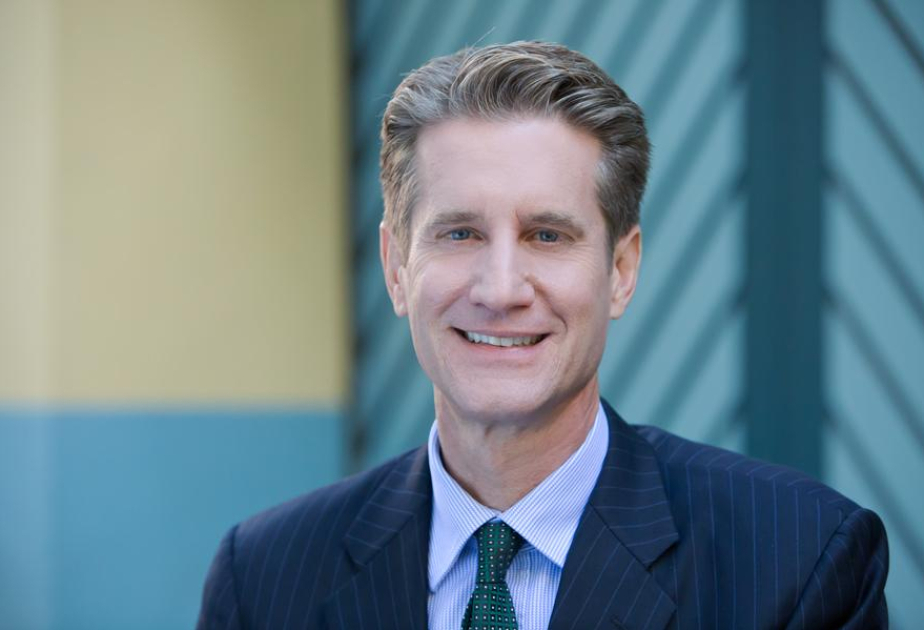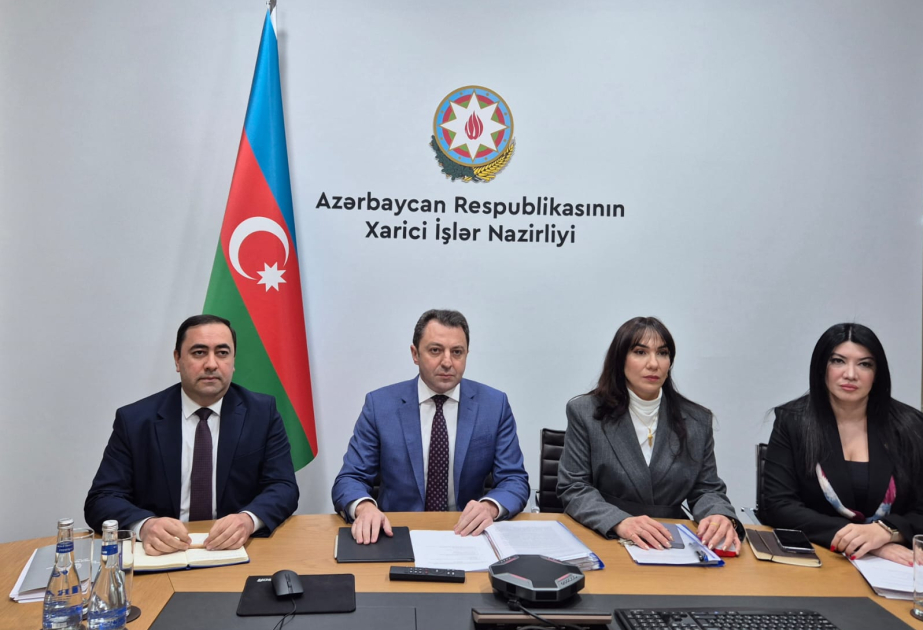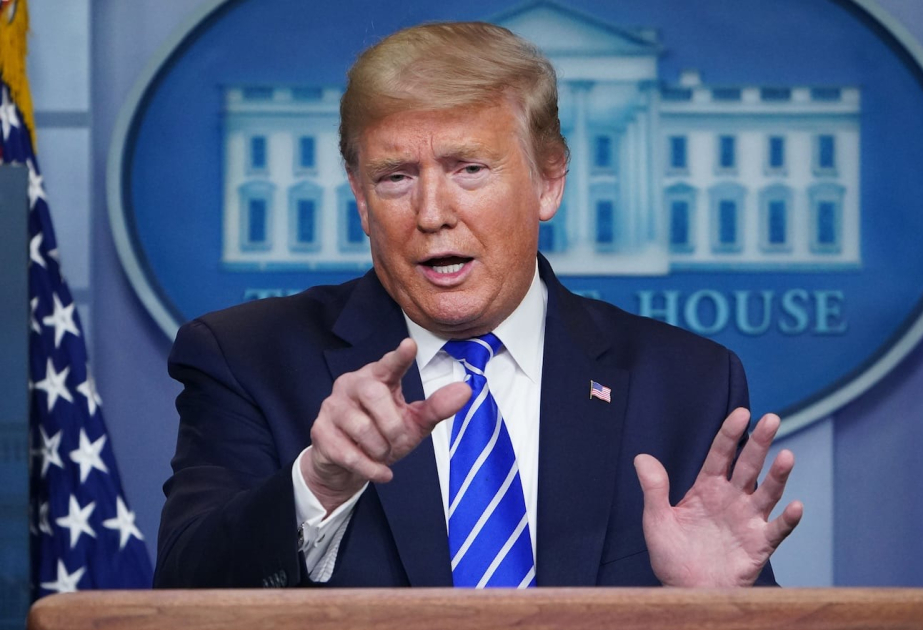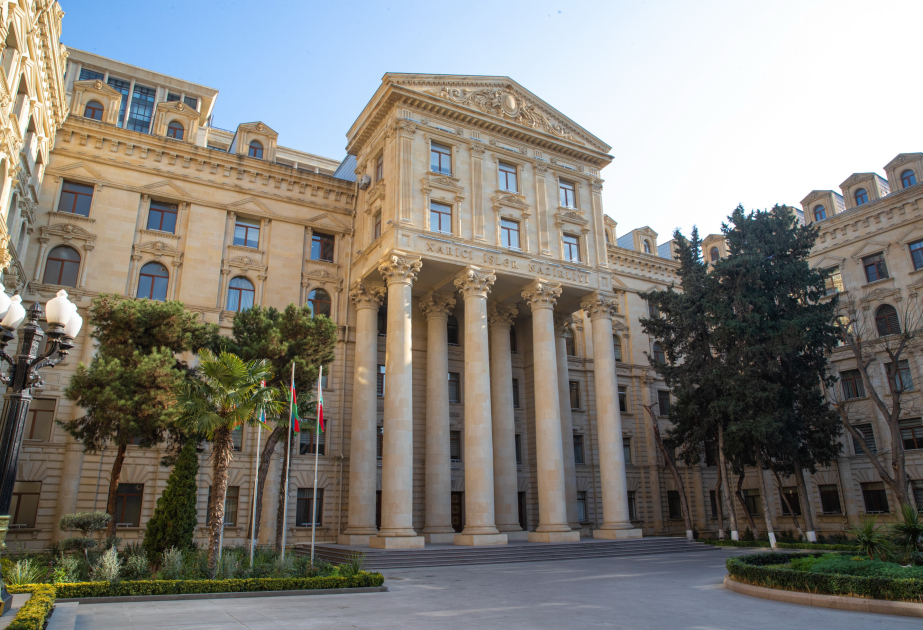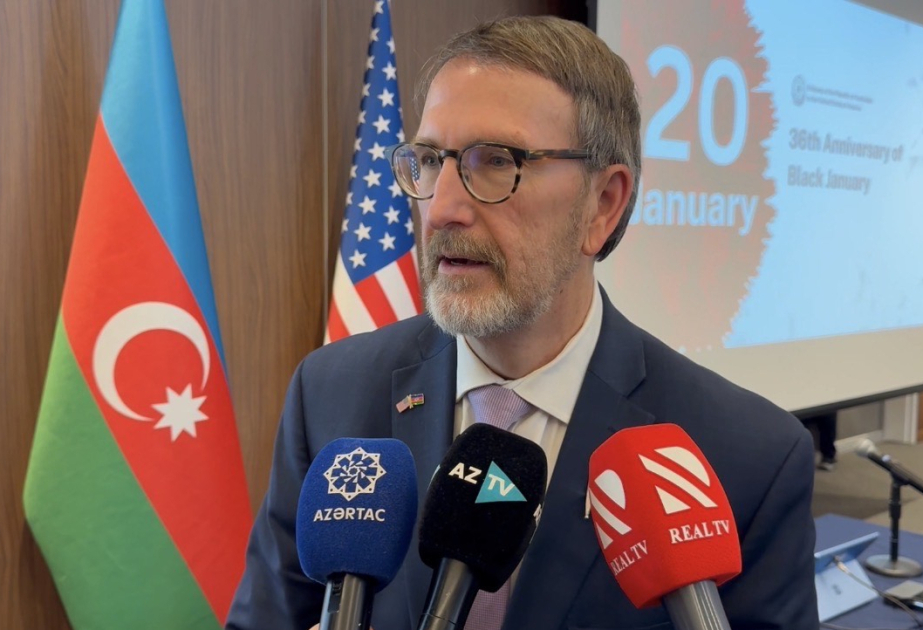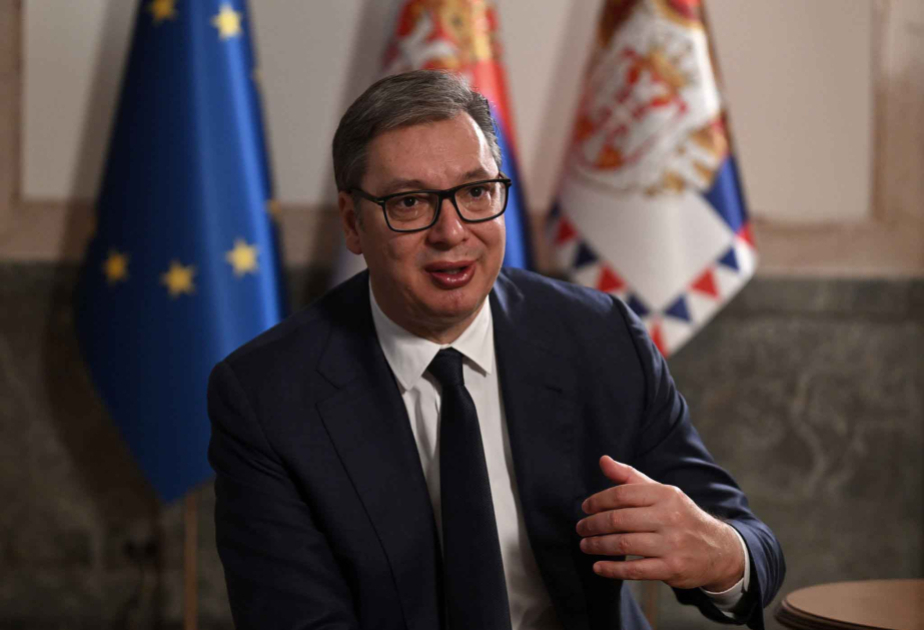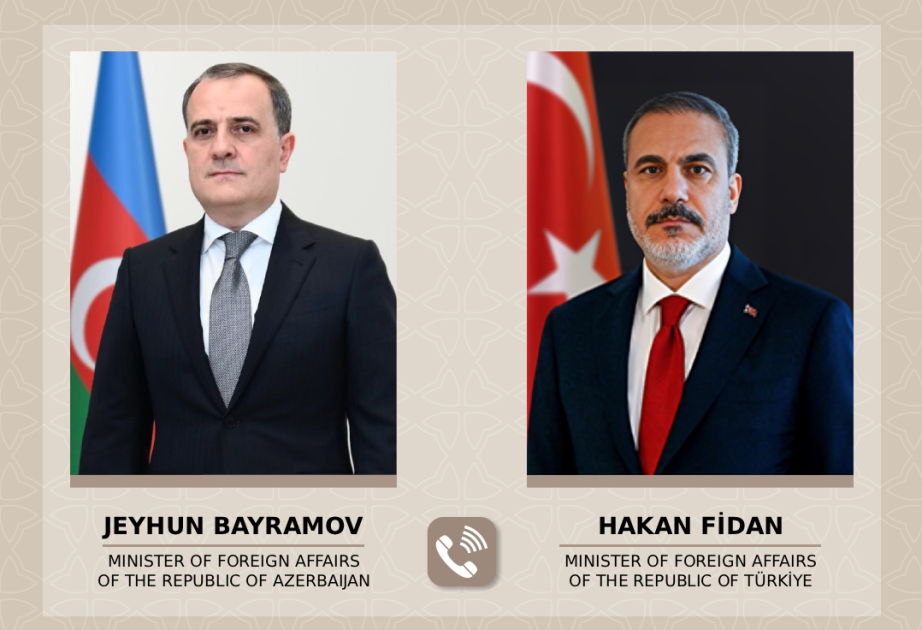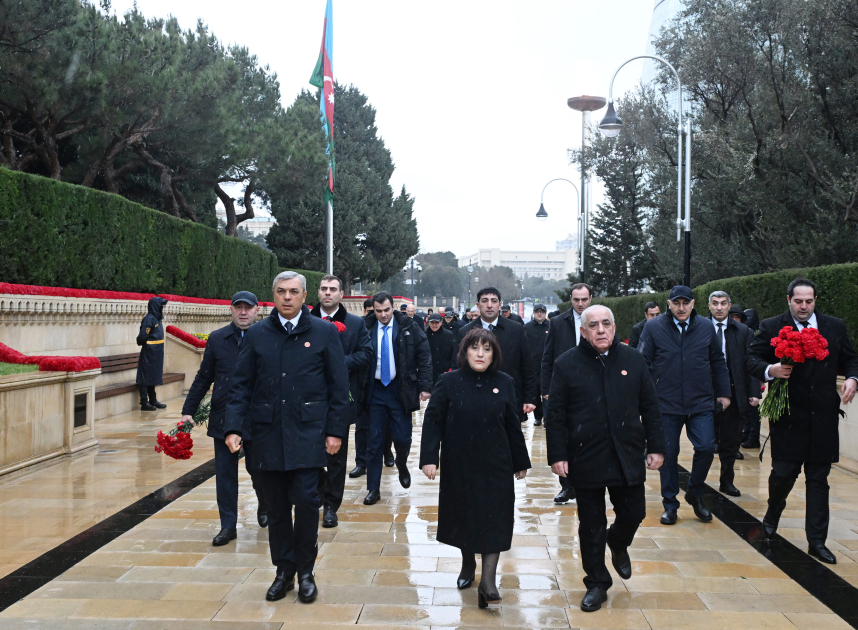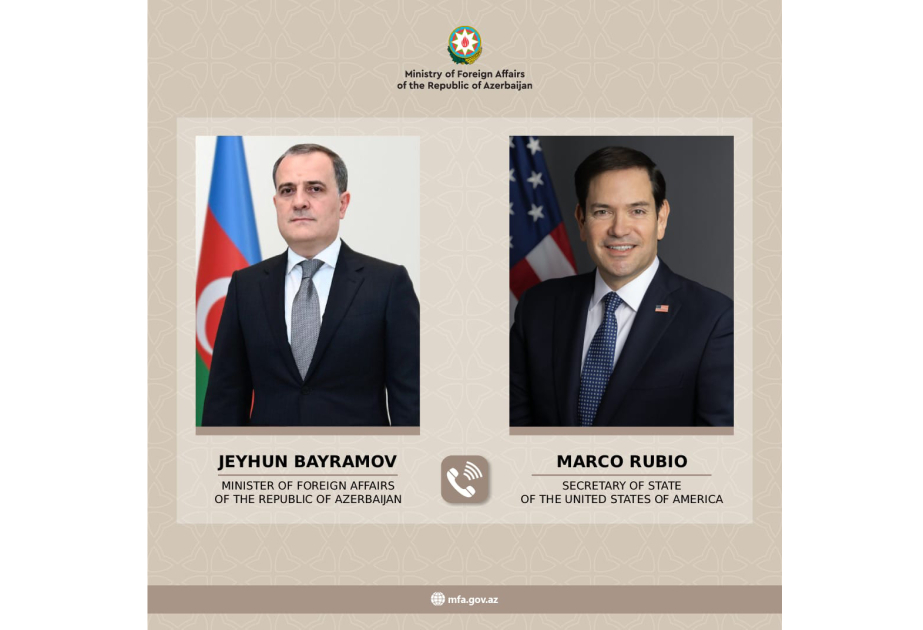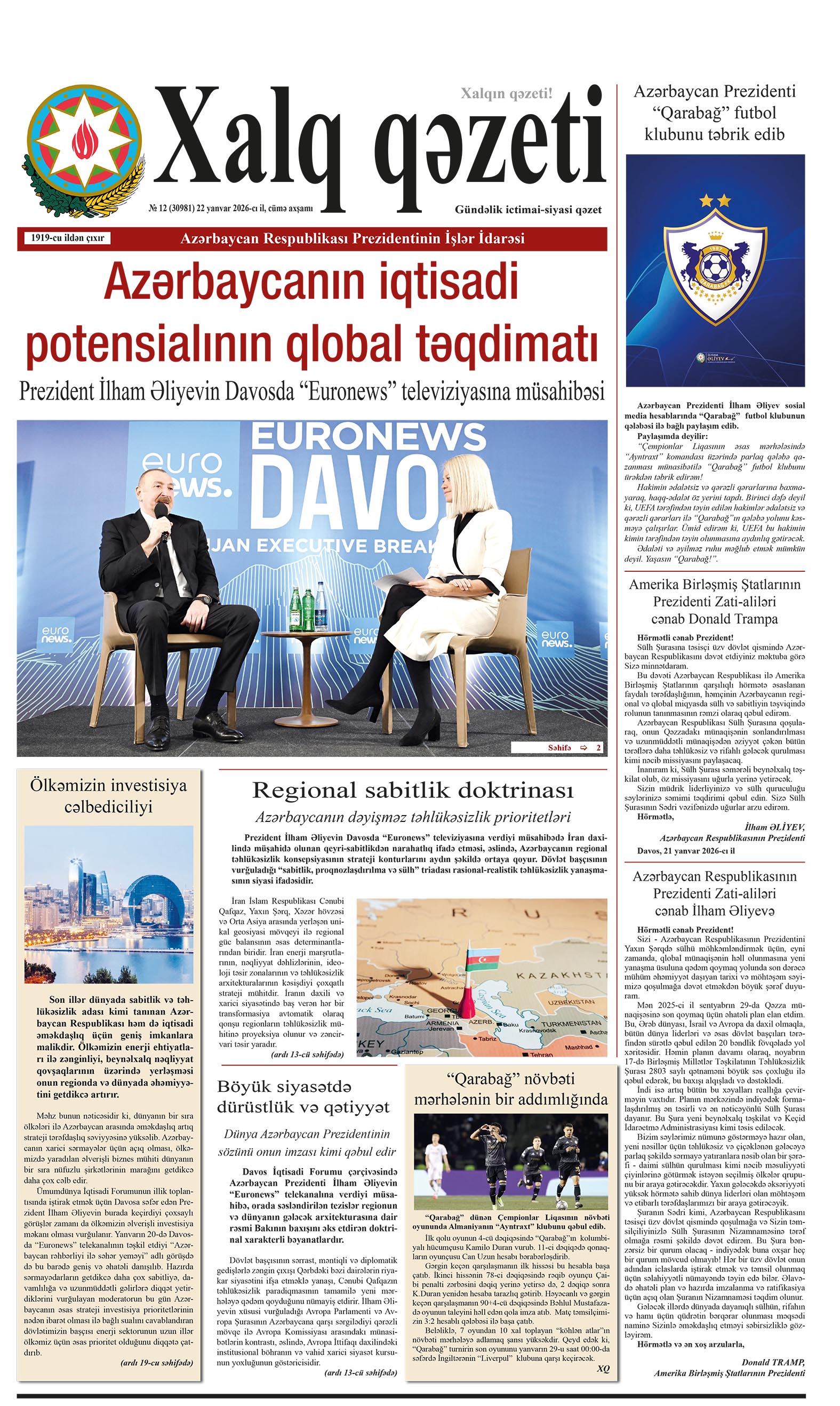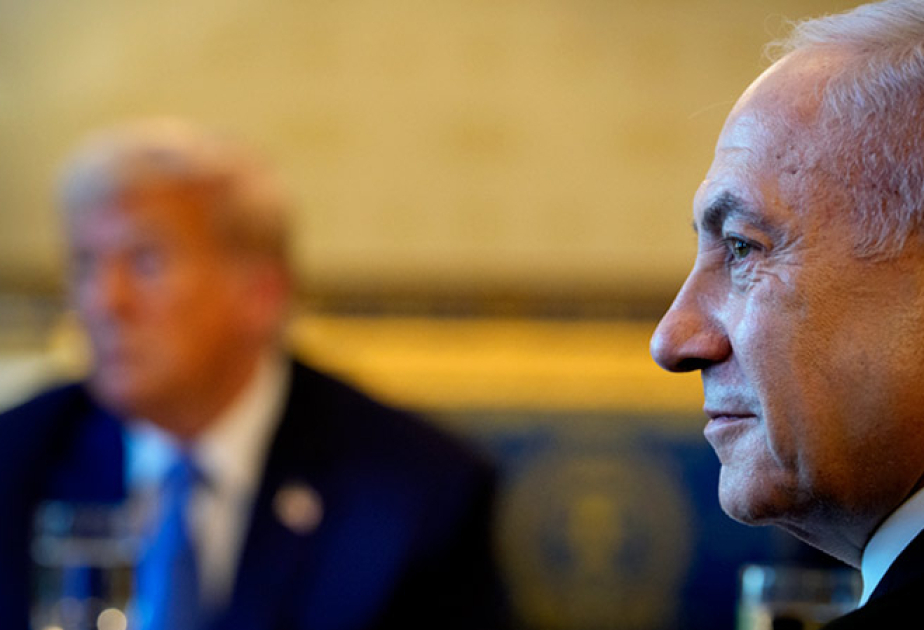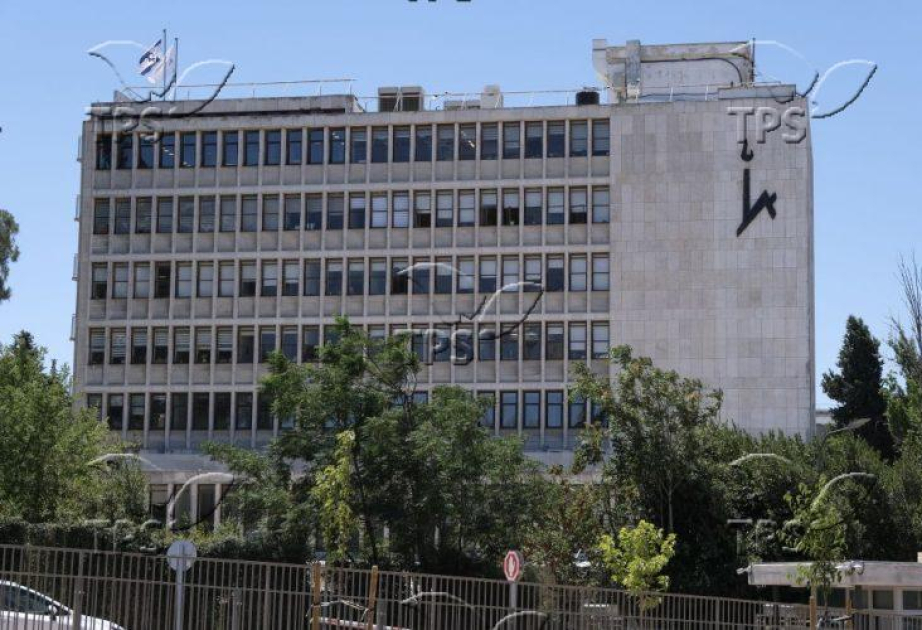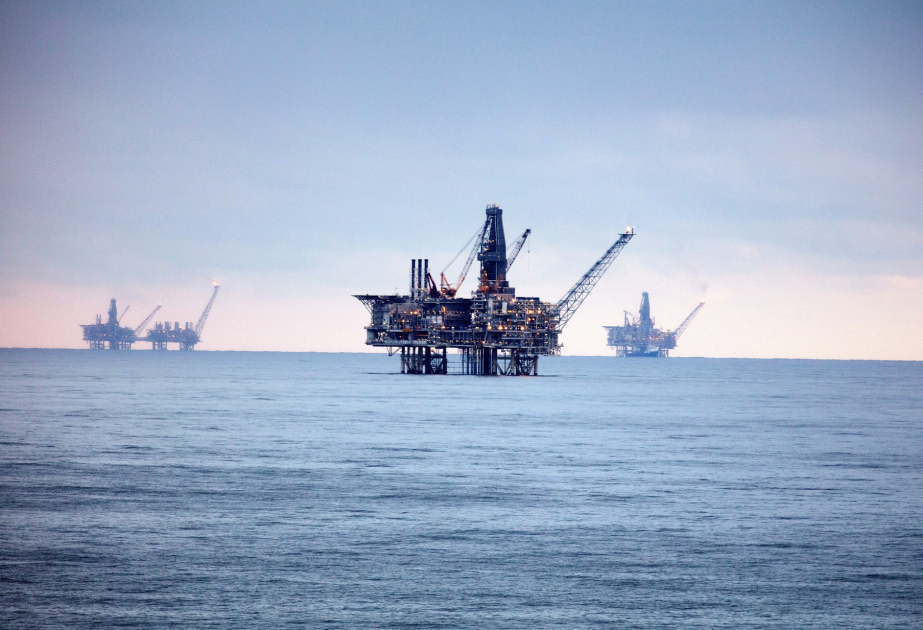AZERTAC presents an interview with Matthew Bryza, member of the Board of Directors of the Jamestown Foundation, former U.S. Ambassador to Azerbaijan, and international expert.
- Long before the term "Middle Corridor" became widely used, what was the strategic importance of the region between the Caspian and the Mediterranean for the United States?
- The connectivity between the Caspian Sea, Azerbaijan, Georgia, and Turkey—and onward to the Black Sea and the Mediterranean—has long held strategic significance for the United States. This was particularly evident with the development of the Baku-Tbilisi-Ceyhan oil pipeline and the South Caucasus gas pipeline. These projects would not have materialized without strong U.S. political backing and active involvement in helping the countries and companies negotiate the necessary agreements to make these investments happen.
Over time, this corridor expanded to include the Baku-Tbilisi-Kars Railroad and growing coordination between China, Kazakhstan, and increasingly Azerbaijan. This allowed for rail shipments to be loaded onto ships, effectively laying the foundation for what we now call the Middle Corridor.
- How would you describe the current level of U.S. engagement with the Middle Corridor?
- The U.S. was very involved and interested in the early stages of the Middle Corridor. However, under the Trump administration, there was less focus and strategic vision regarding the corridor. The administration has not been particularly organized in this area, which limits proactive involvement.
The Middle Corridor gained increased importance for Europe following Russia's second invasion of Ukraine in February 2022. The conflict reshaped many geopolitical and logistical calculations, prompting Europe to explore alternative routes for energy and cargo.
- Could the current conflict between Israel and Iran have any implications for the Middle Corridor?
- As of now, the Iran-Israel conflict does not directly affect the Middle Corridor, and that’s a good thing. However, if oil exports through the Strait of Hormuz are disrupted, or if Iran attacks Gulf oil infrastructure, the global economy could face significant consequences. The existing pipelines—Baku-Tbilisi-Ceyhan, South Caucasus, and Baku-Supsa—are not large enough to make up for a major drop in Gulf oil output.
I don't expect the Middle Corridor to be targeted unless Iran reaches a point of extreme desperation. At present, it appears that Iran still seeks to de-escalate the situation. That said, if the Iranian regime feels existentially threatened, it is conceivable they might lash out at critical infrastructure like the Baku-Tbilisi-Ceyhan pipeline, which supplies Israel with 30–40% of its oil. But again, such a scenario is not imminent.
- What role does Azerbaijan play in the Middle Corridor?
- Azerbaijan is central to the Middle Corridor—it literally runs through the country. The Port of Alat is expanding its capacity, which is promising. Still, the corridor's current growth is far below its potential due to a range of capacity constraints. These include a shortage of ships on the Caspian Sea and insufficient rail cars or platforms. For years, there wasn’t enough east-west and west-east transit to make the corridor profitable.
- What investments are needed to unlock the corridor’s potential?
- Azerbaijan has been investing in expanding the Baku-Tbilisi-Kars rail line and the Alat Port. But more is needed—not just in infrastructure, but in port efficiency and workforce skill development. There’s global momentum now to digitize logistics—things like bills of lading and cargo documentation—with artificial intelligence and smart systems, and such tools can significantly enhance the corridor’s functionality. As long as sanctions on Russia persist, the Middle Corridor holds a real opportunity to become a critical alternative transit route, especially given the risks of shipping through Russia.
- How do regional partnerships factor into the corridor's development?
- It's a very positive sign that Azerbaijan, Kazakhstan, and Uzbekistan are working to deepen cooperation—not only in logistics and transport, but in broader economic terms. That benefits not just them, but also their partners, including Turkey.
- Beyond cargo and energy, are there new dimensions to this corridor?
- Yes. The corridor isn’t only about physical goods anymore. It’s increasingly about data. There are ongoing efforts to connect Azerbaijan with both Kazakhstan and Turkmenistan via undersea fiber-optic cables across the Caspian. International agreements are already in place, and companies like AzerTelecom are planning infrastructure investments that will significantly boost internet speed and reduce latency along the corridor. This digital layer will stretch not just through the Middle Corridor but potentially link southward toward the Gulf.
– How do renewable energy projects enhance Azerbaijan’s importance as a key player in the Middle Corridor?
- Under President Ilham Aliyev's leadership, Azerbaijan recognized early on that its geographic location gives it great potential as a connectivity hub—not only for oil and gas, but increasingly for digital infrastructure and renewable energy. Plans are underway to develop wind and solar energy, including offshore wind in the Caspian Sea, where wind conditions are among the most reliable in the world.
There are also initiatives to lay electricity cables that will connect Azerbaijan with Georgia, Romania, and beyond into Europe via the Black Sea, as well as eastward under the Caspian to Kazakhstan.
- What’s needed to make those future-oriented projects happen?
- More research and feasibility studies are crucial to assess commercial and investment viability. The European Union has shown growing interest in sourcing renewable energy from Azerbaijan, but these projects must be financially sound. Additionally, to reach the joint goal of the European Commission and Azerbaijan to double exports of natural gas from Azerbaijan into the EU under the July 2022 European-Union-Azerbaijan Strategic Energy Partnership, it is important for the EU to make clear that it is committed to continuing to use natural gas for decades to come rather than rushing to phase out it; otherwise, it will not be possible to attract the investments necessary to increase Azerbaijan’s natural gas production and exports to Europe, and Europe will burn more coal, the dirtiest fossil fuel. The best thing Azerbaijan can do to support its realization is to build stronger relationships with European partners—whether private investors or institutions like the European Bank for Reconstruction and Development or the European Investment Bank. These institutions can provide a portion of the investment needed, which could help attract much larger sums from commercial players.


